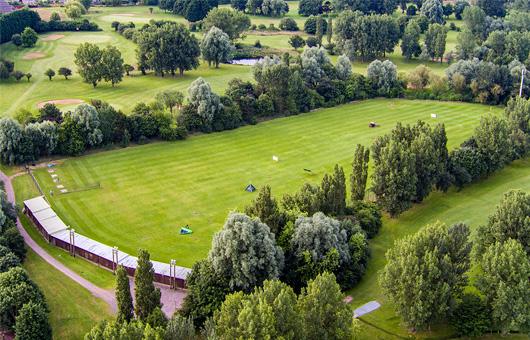A common theme for many weekend golfers is slow play. Whether a member of your group is holding things up or you're stuck behind a slow fourball it can be very frustrating. For many golfers being stuck behind a slow group who won't let them through can ruin their round, as tension and impatience disintegrates their golf swing.
Slow play in professional golf
This has also become an issue in the professional ranks too. Multi-million pound prize funds and ever increasing levels of pressure are causing five hour plus rounds. Whilst the governing bodies and TV networks are becoming increasingly frustrated, the endless discussions between player and caddy, rules officials being called and general lack of urgency are meaning golf is less interesting to watch.
Let's face it, in days gone by golf was less of a power game and robotic exercise in plotting a way around the course. It was relaxed, flamboyant and felt more like the game amateurs love. However, it's no surprise that the influence of the professionals superstars has rubbed off on the weekend player, especially the younger generation.
Advice for speeding up your golf
Lets's consider a few things we can do to ensure we keep up the pace of play. If it's just a friendly game, there's no reason you can't speed things up with a few simple considerations.
Be ready to hit your golf shot
While your playing partners are taking their shots, make sure you are preparing for your own. Checking your yardage, wind direction and selecting the club for your chosen shot all take time. There's not point waiting until everyone else has finished to start your pre-shot routine. Additionally if you find your group is slow, consider playing 'ready golf' and play out of turn based on whoever is ready to play next.
Be quick to help look for a lost golf ball
If one of your golfing buddies can't find their golf ball be ready and willing to lend a hand. Time spent looking for lost balls is a big reason why the pace of play slows down. Helping each other to get moving again as quickly as possible will speed up play. Remember you're only allowed five minutes from the time you start looking to find your ball.
Keep an eye on wayward tee shots
As per the point above, helping your fellow golfers by watching their tee shots and confirming where the ball went can really help. Point out a tree or feature near where their ball finished and if necessary and you're not in trouble yourself, walk to their ball with them. Sometimes we can't see the flight of our own ball, either due to it being particularly wayward, the setting sun getting in our eyes or just due to limited or impaired vision.
Accept a lost ball and take a drop
If it's a friendly game and you can't find a ball quickly but are sure it's 'gotta be somewhere here', just take a drop. If there are a lot of autumn leaves on the ground or thick rough you might even agree between yourselves this can be a free drop, to avoid turning over every leaf. Obviously you can't do this during a round you want to use for handicap adjustments or in competition play, but on a Sunday knockabout, especially in bad weather it can really keep things moving.
Line up your putt whilst others are playing
In a similar way to being ready to hit your shot, be ready to take your turn on the green. Assessing your putt, reading the green and even placing your ball, if you use the alignment markings, can often be done while others are putting.
When playing stableford be happy to pick up
Part of the reason stableford is such a popular way to score a round of golf is that one or two bad holes won't ruin your score. Likewise if you are struggling on a hole or have lost your ball and cannot score, or even if you're extremely unlikely to score, you should pick up your ball. If your playing partners are still playing the hole, help them finish quickly, grab the flag stick, help look for their ball or have a drink or snack and get yourself ready for the next hole.
Try to keep up with the group in front
A good bench mark for your pace of play is whether you are keeping up with the group in front. If you're consistently waiting for the group in front you've got no worries - other than staying focused and calm if they won't let you play through!
Letting faster groups play through is good etiquette that you should always try and demonstrate. Pick the right time though, play your tee shot and start walking before standing aside and waving a group through. Don't wait around on a tee for a few minutes waiting for them to catch you up, a couple of well played, quick holes could see you put some distance between you and the group behind.
In short keeping up with the pace of play is important. However, for many beginner golfers this can be difficult, if shots are inconsistent or lack distance. My advice would be to play during quieter times. If you roll up during a busy Sunday morning, it's likely you will feel pressured. Often golf courses are very quiet on Sunday afternoons, you might even have the course to yourself! If that's the case, you can play at whatever pace you like!



